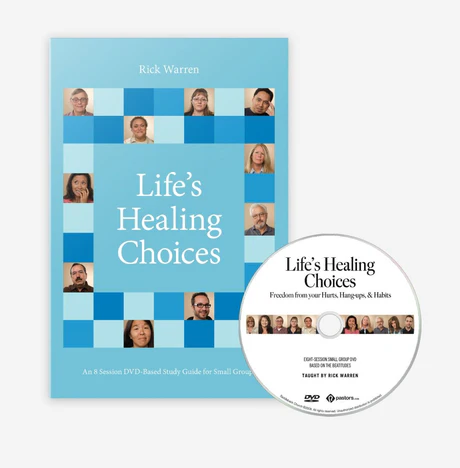The Bible says, in John 7:13,
"No one had the courage to speak favorably about Jesus in public" (NLT). Even some of history's greatest spokespeople for the gospel have struggled in their resolve to proclaim the truth boldly. The Bible says in Acts 18:9, "One night the Lord spoke to Paul in a vision: 'Do not be afraid; keep on speaking, do not be silent'" (NIV).
In our current cultural climate, it's more intimidating than ever to stand up for biblical truths that are seen as politically incorrect. And in order to do so, courageously, believers need a thorough understanding of the world that is framed by Scripture.
Everyone thinks about the world through a particular lens, or filter. We refer to this filter as someone's "worldview." And in our post-Christian culture, most Christians have a non-Christian worldview. In other words, a big part of our preaching assignment is helping our listeners to see the world through the lens of a biblical worldview.
Our task is not necessarily to shape the specific opinions that people should have on a particular topic, unless the Bible directly and clearly addresses it. Instead, our job is to present a biblical worldview that will collide with and correct every other, contradictory worldview held by people who are attempting to follow Jesus.
Let me give you some examples of the kinds of worldviews held by the people to whom you preach regularly...
Materialism
Materialism is the worldview that all that matters is the physical, material world. Therefore, what matters most is money and the acquiring of possessions. When believers fall into the trap of materialism, economics trumps everything else. It determines how they vote, act, and think. But the Jesus said, in Luke 12:15,
"A man’s life does not consist in the abundance of his possessions" (MSG). In other words, your valuables don’t determine your value.
Hedonism
Hedonism is the philosophy that whatever
feels good must
be good. In materialism, money is God. In hedonism, pleasure is God. With hedonism, the whole goal of life is to be happy, to have fun, and to be comfortable. But happiness is simply a byproduct of living the purpose you were created for. Happiness was never meant to be your primary goal in life. But the Bible says in Proverbs 21:17 that
"the pursuit of pleasure is never satisfied" (MSG).
Individualism
Individualism says,
"I'm god." It's a me-first mentality. America was built on rugged individualism. I do what I want to do, when I want to do it and nobody can tell me not to do it. Today that has evolved into the culture of narcissism. But God didn’t create you to live for
you. You were made for something far, far bigger than yourself. Individualism destroys marriages and relationships. It causes us to make selfish, destructive decisions. Philippians 2:4-5 says,
"Don’t look out only for your own interests, but take an interest in others, too. You must have the same attitude that Christ Jesus had" (NLT).
Very few leaders in our culture are calling people to self-denial, but it's part of courageously proclaiming the truth to people as you preach.
Collectivism
Collectivism is also called socialism. Socialism is an anti-Christian worldview that says government is god. It basically says government should control everything. There’s nothing wrong with government. Government is a good thing. In fact, it was invented by God. But people who don’t know God make government god.
What I’ve discovered while speaking in all kinds of cultural forums is this: Politics is the religion of people who don’t know God. Again, there’s nothing wrong with politics, but politics is not the savior. If you think any politician is going to be your savior, you’re going to be deeply disappointed. The Bible says there are three purposes of government: to protect freedom, to insure justice, and to preserve peace.
Jesus explained the limited role of government in Matthew 22:21 when he said, "Give to Caesar what belongs to Caesar, but give to God what belongs to God" (NLT). I should give my government my respect, my taxes, and my obedience to the law of the land.
By the way, the Bible says give to Caesar what is Caesar’s. Who is Caesar in a democracy? We don’t have a king or a caesar. We don’t have a dictator. In a democracy,
the voters are Caesar. The power in America does not reside with the judicial branch or the legislative branch or the executive branch. It resides with the people who elect politicians to office.
Anytime you are preaching to Christians, you are preaching to people with dual citizenship. I’m a citizen of the United States but I’m also a citizen of heaven. And my greater loyalty is to God, not to government. And if there is difference between God and government, there’s no question which one I’m going to side with. A biblical worldview rebukes any belief that God and country are equally important.
We have the crumbling of our culture, crisis in our schools, controversies in our courts, corruption in our businesses, chaos in our government, carnality in our churches, confusion in our families, and conflicts in our personal lives.
What is the biblical worldview? That’s why God gave us the Bible, which gives to us a complete picture of God, of humanity, and of eternity.
When it comes to your preaching, there are plenty of things in the Bible that don't upset anyone. And you don’t need extra courage to preach about those things. For instance the Bible says you must help the poor, care for the sick, tell the truth and be fair, respect everyone, love everybody, and take care of the environment.
But there are three aspects of the Christian worldview that are hated by this world. And most Christians clam up and shut up because they’re afraid to stand up in the areas that are controversial. These three areas are...
1. The sanctity of life
The sanctity of life tells us that God has a purpose for
every unborn baby. God planned your life before you were born. In fact, God planned your life before your parents were born. The Christian worldview informs us that before God created the universe, he thought of you. There are accidental parents but there are no accidental babies. There are illegitimate parents but there are no illegitimate babies. God is bigger than human mistakes. God is bigger than human sin.
We are responsible to speak up for those who cannot speak up for themselves. And the people in our culture least capable of speaking up for themselves are the unborn - the almost sixty million Americans who would be here if they hadn’t been aborted. Every life is precious.
2. The sanctity of sex
The sanctity of sex teaches us that sex only for marriage. Sex was God’s idea, and he created sex to bond a husband and wife together. I told you a couple weeks ago that when a man and a woman have sex together it releases oxytocin in both of them. Oxytocin is the bonding chemical that binds a husband and wife together. It enhances emotional commitment. When a woman nurses a baby it releases oxytocin in both the mom and in the baby. It is a bonding agent.
The fact that God designed sex for the bonding of a husband and wife is the reason why there’s no such thing as casual sex. When you have casual sex, it releases oxytocin in you, which is a bonding element, and that’s why people get hurt. When people are cheated on, it bothers them. Why? Because it’s not just physical. It’s emotional and spiritual.
Sex isn’t bad. Sex isn’t dirty. Sex isn’t wrong. Sex is holy. And the sanctity of sex is that God designed it for the creation of all of us, and to bring husbands and wives together, and to be a model of the union between Christ and the church. The Bible says in Hebrews 13:4 that
"Marriage is to be honored by all, and husbands and wives must be faithful to each other. God will judge those who are immoral and those who commit adultery" (TEV).
God’s instructions have never changed. Premarital sex is unacceptable to God. It always has been; it always will be. Living together without getting married and the commitment of marriage and the blessing of God is unacceptable to God. It always has been; it always will be. Adultery is unacceptable to God. It always has been; it always will be.
Pornography and the objectification of a man's or a woman’s body is unacceptable to God. It always has been; it always will be. Same-sex sex is unacceptable to God. It always has been; it always will be. Notice I said same-sex
sex, not same-sex
attraction. Attraction is not sin; action is. You can’t control all of your attractions, but you can control all of your actions.
If you’re guilty of any of these sins, the church is
for you because we’re all forgiven sinners. You can find forgiveness through a relationship with Jesus and healing in the context of a loving and accepting church family.
3. The sanctity of marriage
The Bible is very clear that marriage is the union of one man and one woman for life. That is God’s intended, original design. What about all the polygamy in the Bible? The Bible doesn't approve of everything that the Bible reports. It’s hard to find a book that reports more violence, incest, rape, molestation, murder, jealousy, and greed. But we call it the
Holy Bible because it tells the truth, and nothing but the truth.
Matthew 19:4-6 says,
"Jesus answered, “Don’t you know that in the beginning the Creator made a man and a woman? That’s why a man leaves his father and mother and gets married. He becomes like one person with his wife. Then they are no longer two people, but one. And no one should separate a couple that God has joined together" (CEV).
There are many issues in life where people of good will can disagree. There is no healthcare plan in the Bible, so Christians can disagree on that. There is no defense plan in the Bible, so Christians can disagree on that. There is no economic recovery plan in the Bible, so Christians can disagree on that. But when it comes to the sanctity of life, the sanctity of marriage, and the sanctity of sex – these are nonnegotiable.
I never have and never will endorse a candidate. I want to minister to both sides of the aisle. I have friends who are Democrats and I have friends who are Republicans and I’m for my friends. Nobody gets it right all the time. So I would advise against preaching, as though you're speaking for the Bible, on issues that the Bible doesn't directly deal with. But you should be preaching the truth of the Bible courageously to call Christians to adopt a biblical worldview.
You don’t need to apologize for voting for a Christian worldview, which stands up for the sanctity of life, the sanctity of sex, and the sanctity of marriage. Preach so as to move people to accept God’s Word as their first and final authority. And preach God's truth even when it is unpopular, fearing God's disapproval more than the disapproval of people.
If you don’t know what the Word says, check out
Foundations.
Foundations is the course at Saddleback Church, written by Pastor Tom Holladay and by my wife, Kay, that teaches you what God says about the Bible, about God, about Jesus, about the Holy Spirit, about the second coming, about heaven and hell, about salvation and creation and how to grow, and what the Bible says about good and evil.
The rewards of standing courageously for the truth will last forever. Hebrews 10:35 (TEV) says,
"Do not lose your courage, then, because it brings with it a great reward." That reward is far greater than any disapproval you might have to put up with.








